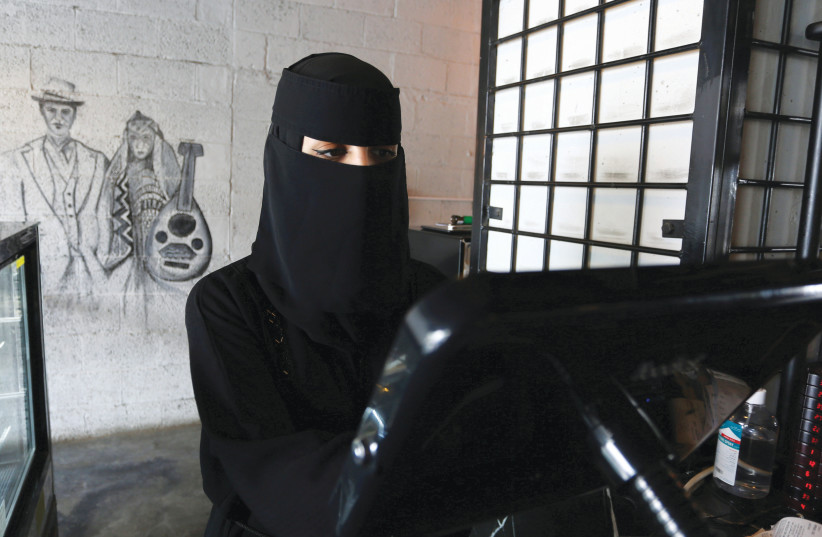If we strip away the comparison between how Western and Middle Eastern countries have developed, we can more accurately examine how the progression of women’s legal rights work in the Middle East and North Africa region, and what those rights are. Factors including the religious status of those countries and perhaps the ‘orientalist’ view of the Middle East held by some in Western countries (perceiving the Middle East and its cultural differences as inferior and exotic) can obscure the progress which has been made. Of course, the legal rights of women differ somewhat throughout the region, but what is particularly interesting is that it seems that the legal rights of women in several places in the Middle East are never safe and assured.
There is evidence of a hunger for increased legal rights for women in the Middle East just as there is anywhere else. There is a myriad of feminist organizations and movements in the Middle East. That said, they tend to focus on specific issues rather than having a large impact on the political system. For example, the Organization of Women’s Freedom in Iraq was started in 2003 focuses on combating the trafficking of young women and girls. In order to do this, they have opened around six safe houses for women survivors of violence in the country. Additionally, another organization, The Arab Women’s Leadership Institute (AWLI), works to increase political participation through networking and training sessions. Indeed, this work is inspirational and groundbreaking.
However, improvement in the status of women often has to come from other sources. Pressure groups lack permanent direct legal and political influence. This is combined with a lack of political representation among women in the Middle East. To be more specific, only 17% of members of parliaments in the region is female. From this data, it shouldn’t be surprising that women struggle to have their voices heard and to integrate society. Therefore, an increase in women’s rights comes in practice, from the desire of male members of the political elite to use legal reform as a social engineering tool to embody social modernization.
However, when talking about how legal reforms have affected women it is important to have in mind the diverse range of women throughout the Middle East and North Africa. It is also important to remember that while some reforms have had a positive impact for educated women in major urban cities, other women – particularly those living in rural communities – have struggled more. This is because they do not have an understanding of their legal rights or know the benefits enjoyed from subsequent legal reform. For example, it is traditional under Islamic law that child marriages occur, even with relatives. As well as this, according to Sharia Law men are allowed to marry up to four women. Polygamy undeniably effects the legal rights of women, collectively and individually.
Indeed, there is a rising rate of polygamy in Jordan. To give an indication of the scale, according to a report referenced in an article in The Arab Weekly, in Jordan “30,538 polygamy contracts were registered… over the past five years.” This practice is still legally recognized in many countries including Afghanistan, Pakistan, Bangladesh and Iran. Consequently, it seems some interpretations of religion have created a boundary for women to succeed and flourish.
In contrast to the broader trends in the Middle East outlined above, women’s rights have seen a very different situation in Israel. It would be naïve to suggest that Israel has reached its full potential in creating a society whereby women are equal to men, however, it is far ahead of other countries in the region, further proving that regarding women’s rights, the MENA region is not a monolith. It may be suggested Israel’s more equal societal dynamics exist because a larger degree of equality is an inherent feature of a democracy compared to another form of government, and Israel is the only democratic country in the region. However, I believe that it would be unfair to not commend Israel’s advancement in this area. Especially when comparing it to other countries – such as Saudi Arabia – whereby women were only recently given the legal right to drive, let alone vote.

Let’s take the female labor force participation in MENA region: It is the lowest globally, at an estimated 20% in 2019. However, within that, Israel’s figure was roughly 68% in 2020. Israel has created an atmosphere where women are encouraged to join the workforce and cast their footprint onto Israeli history – so much so that the 4th prime minister of Israel who was elected in 1969 was female: Golda Meir. A female prime minister is an achievement and a symbol that many countries all over the world have not yet attained even today, let alone in the 1960s. Women in Israel have continuously had more legal rights than those in other Middle East countries. This does not mean that Israel is a perfect country, but I believe that in this sense they have created an environment and political system that have included women more so than many of their neighbors.
Overall, MENA's relationship with the advancement of women’s rights is a widely criticized one. However, many successes in the journey to obtain better legal rights for women in the Middle East are often overlooked, as are the campaigns for change. This journey will be ongoing, but I argue that if other countries in the region follow Israel’s standard and progressive attitude, we will be able to see a large positive change for women in the Middle East and North Africa and consequentially for their societies as a whole.
The writer is a Policy Fellow of The Pinsker Centre, a campus-based think tank which facilitates discussion on global affairs and free speech. The views in this article are the author’s own.
